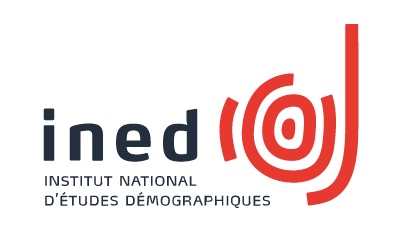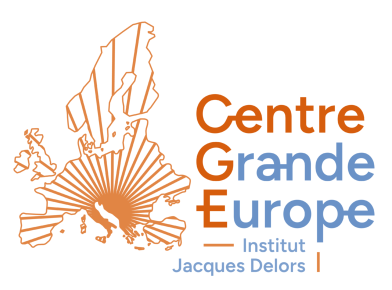Événement en présentiel
Une séance organisée dans le cadre du séminaire général de Relations Internationales et politiques planétaires du CERI
Retour au centre et contrôle des exécutifs dans l'accueil des étudiants étrangers
Lieu : Salle G009 (rez-de-chaussée), 28 rue des Saints-Pères 75007 Paris
Intervenant :
Louis Baudrin, Sciences Po-CERI
Responsables scientifiques de l'événement : Thierry Balzacq, Stéphanie Balme, Ariel Colonomos, Carola Kloeck, Christian Lesquesne, Hugo Meijer, Karoline Postel-Vinay, Frédéric Ramel, Chiara Ruffa.
Événement en format hybride (présentiel / visio-conférence)
Lieu : Salle K011, 1 Place Saint-Thomas - 75007 Paris et également en ligne via zoom
L'événement est organisé par le groupe "Au-delà du postsoviétisme : dynamiques sociales et politiques" du CERI, en partenariat avec le séminaire "Autoritarisme, guerre et mobilisations dans l’espace postsoviétique" (CERCEC-EHESS).
Speakers:
Matthew Light, University of Toronto
Anne-Marie Singh, Toronto Metropolitan University
Chair and discussion:
Gilles Favarel-Garrigues, CNRS, Sciences Po-CERI
Responsables scientifiques : Vera Ageeva, Anna Colin-Lebedev, Juliette Faure, Gilles Favarel-Garrigues, Olivier Ferrando, Denys Gorbach, Elisabeth Miljkovic, Renata Mustafina, Kathy Rousselet, Ioulia Shukan, Tatyana Shukan, Victor Violier
Si vous souhaitez suivre le séminaire via zoom, merci de vous inscrire en suivant le lien ci-dessous :
INSCRIPTIONS ZOOM
Si vous souhaitez suivre le séminaire en présentiel, merci de vous inscrire avec les liens ci-dessous :
Événement en format hybride (présentiel / visioconférence)
Lieu : Salle G009, rez-de-chaussée, 28 rue des Saints-Pères - 75007 et également en ligne via zoom
Cette séance est organisée dans le cadre du séminaire d'écriture du CERI.
Intervenant.e.s :
Sixtine Deroure (anciennement ATER au CERI, doctorante Université Panthéon Sorbonne) présentera un chapitre de thèse intitulé "Fêter le martyr: inscription symbolique et spatiale des “martyrs du devoir”
Discutant-e-s :
Antonia Collard-Nora, doctorante, CERI
Laurent Bonnefoy, chargé de recherche CNRS, CERI
Manon Laroche (doctorante au Centre Thucydide de l'Université Paris Panthéon-Assas) présentera un chapitre de sa thèse portant sur la fabrique de la politique étrangère égyptienne
Discutant-e-s :
Louise Beaumais, doctorante, CERI
Jérome Doyon, professeur junior, CERI
La séance du séminaire est également disponible sur zoom, vous recevrez le lien d'inscription après votre inscription.
Événement en ligne
Intervenant.es :
Cécile Aptel, directrice adjointe du Bureau mondial de la recherche et de la prospective de l’UNICEF
Amb. Yann Hwang, substitut du procureur général près la cour d’appel de Paris, ancien Chargé de mission à la Direction des affaires stratégiques, de sécurité et du désarmement et ancien Représentant permanent de la France auprès de la Conférence du désarmement à Genève
Dans le cadre du Groupe de recherche sur l'action multilatérale (GRAM), ce séminaire de recherche est organisé en partenariat avec l’Ecole doctorale de Sciences Po et le CERI (Centre de recherches internationales).
La page du séminaire pour plus d’informations.
Le séminaire est ouvert à tou-te-s : étudiant-e-s, doctorant-e-s, enseignant-e-s, chercheure-s de tous les laboratoires et à toute personne intéressée.
N’hésitez pas à contacter Anaëlle Vergonjeanne pour être ajouté à la liste de diffusion du GRAM.
Vous recevrez un email de confirmation avec les informations de connexion après votre inscription.
Responsables scientifiques :
Guillaume Devin, professeur des universités à Sciences Po, chercheur CERI,
Alix Defrain-Meunier, doctorante, Sciences Po-CERI,
Anaëlle Vergonjeanne, doctorante, Sciences Po-CERI. (Groupe de Recherche sur l'Action Multilatérale)
Lieu :
Événement en présentiel
Une séance dans le cadre du séminaire conjoint CERI - CEE (Centre d'études européennes et de politique comparée) : Les sciences sociales en question : grandes controverses épistémologiques et méthodologiques.
Lieu : Salle Pierre Hassner (S1), 2e étage, 28 rue des Saints-Pères - 75007 Paris
Coordination scientifique: Samy Cohen, SciencesPo-CERI, Nonna Mayer, Sciences Po-CEE, CNRS
Événement en format hybride (présentiel / visio-conférence)
Lieu : Salle G009, 28 rue des Saints-Pères - 75007 Paris et également en ligne via zoom
L'événement est organisé par le groupe "Au-delà du postsoviétisme : dynamiques sociales et politiques" du CERI, en partenariat avec le séminaire "Autoritarisme, guerre et mobilisations dans l’espace postsoviétique" (CERCEC-EHESS).
Responsables scientifiques : Vera Ageeva, Anna Colin-Lebedev, Juliette Faure, Gilles Favarel-Garrigues, Olivier Ferrando, Denys Gorbach, Elisabeth Miljkovic, Renata Mustafina, Kathy Rousselet, Ioulia Shukan, Tatyana Shukan, Victor Violier
Si vous souhaitez suivre le séminaire via zoom, merci de vous inscrire en suivant le lien ci-dessous :
INSCRIPTIONS ZOOM
Si vous souhaitez suivre le séminaire en présentiel, merci de vous inscrire avec les liens ci-dessous :
Responsables scientifiques de l'événément : Bayram Balci et Adrien Fauve
in UN Peace Operations
Professor Chiara Ruffa, Centre for International Studies (CERI), Sciences Po.
Pernilla Rydén, Director, Challenges Forum International Secretariat
Scientific coordinator: Chiara Ruffa, Sciences Po-CERI
If you wish to follow the conference via zoom, please register by following the link below:
If you would like to attend the conference in person, please register using the links below:
Venue: Amphithéâtre Erignac, 13 rue de l'Université - Paris 7
Jérôme Sgard, Sciences Po - CERI
Événement en format hybride (présentiel / visio-conférence)
Lieu : Salle Pierre S1, 2e étage, 28 rue des Saints-Pères 75007 et également via zoom
Notes sur la radicalisation de la droite au Brésil
Dans le cadre de "Último jueves del OPALC" en partenariat avec l'association Abya Yala
Intervenant :
Pedro Lima, Universidade Federal do Rio de Janeiro et EHESS
Modérateur :
David Recondo, Sciences Po-CERI
Vous souhaitez suivre le séminaire via zoom, veuillez vous inscrire ci-dessous :
INSCRIPTIONS
Vous souhaitez suivre le séminaire en présentiel, veuillez vous inscrire avec les liens ci-dessous :
Responsables scientifiques : Olivier Dabène, Sciences Po-CERI, David Recondo, Sciences Po-CERI
A discussion between researchers and practitioners
Cyril Gérardon, deputy-director de l’Ecole Pratique des Métiers de la diplomatie
Christian Lequesne, professor at Sciences Po-CERI
Christian Lequesne, Sciences Po-CERI
Federica Bicchi, London School of Economics and Political Science
Rémi Meehan, Sciences Po-CERI
Scientific coordinators: Christian Lequesne and Rémi Meehan
Un séminaire organisé dans le cadre du groupe de recherche PopAsiE
Responsables scientifiques : Cao Minh Ho (INED, CRIS Sciences Po Paris), Hélène Le Bail (CNRS, Sciences Po CERI, Institut Convergences Migrations) et Djamel Sellah (Centre Emile Durkheim, Sciences Po Bordeaux, Institut Convergences Migrations)
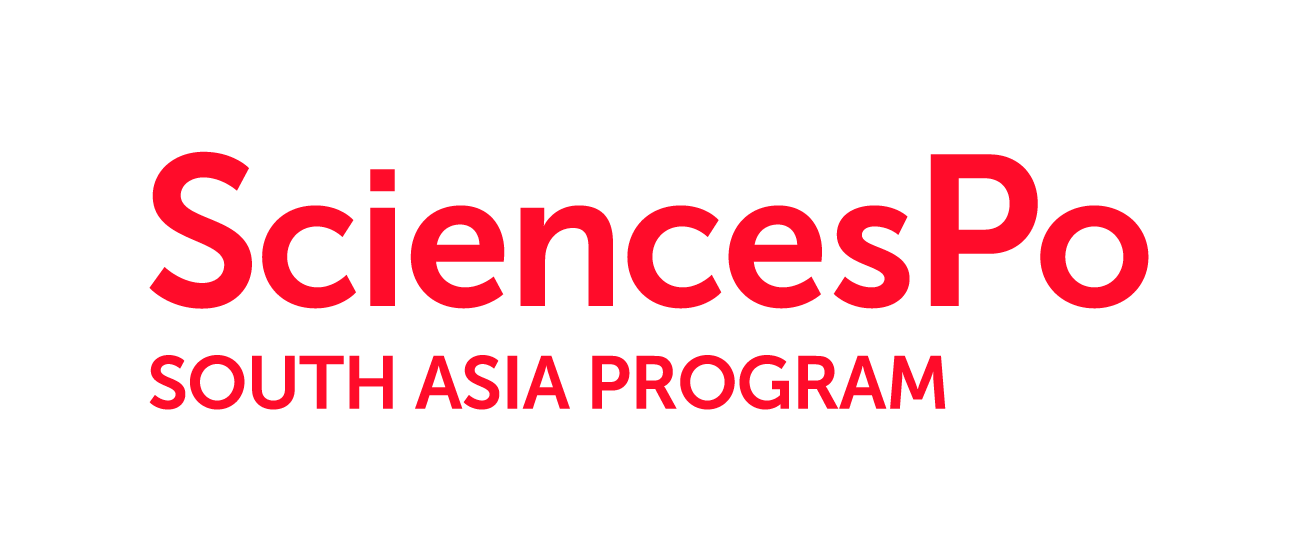
29 and 30 April 2024
Venue: Amphi 28 - 28, rue Saint - Guillaume, 75007 Paris
Inaugural meeting of the Sciences Po South Asia Program
Amphi 28 - 28 rue Saint - Guillaume Paris 7
9:00: Opening by Sergei Guriev, Sciences Po Provost
9:30: Introductory remarks by Mrs Chandrika Kumaratunga, Former President of Sri Lanka and a Sciences Po alumna
10:00 – 12:30 : A Crisis of a Different Magnitude
Chair: Alexandre Mariani, Sciences Po-DAI
Discussant: Charlotte Halpern, Sciences Po-CEE/CNRS
Christophe Jaffrelot, Sciences Po-CERI/CNRS
Hydric Stress, Air Pollution and Deforestation in India
Isha Ray, Berkeley University/LSE
Community and the Commons: Case Studies from India, Nepal and Bangladesh
--- Lunch break ---
13:45 – 16:45 South Asian Cities and Climate Change
Chair: Sukriti Issar, Sciences Po-CRIS/CNRS
Discussant: Laurent Gayer, Sciences Po-CERI/CNRS
Lalitha Kamath, Tata Institute of Social Sciences, Mumbai
Fisher Stories that Reframe Climate Action in Mumbai
Umair Javed, Lahore University of Management Studies, Lahore
Urban Villages, Environmental Transformation, and Local Politics in Lahore
Kazi Khaleed Ashraf, Bengal Institute for Architecture, Landscapes and Settlements, Dakha
The Future is Fluid: Water as an Existential Theme in Architecture and Urbanism in Bangladesh
Amphi 28 - 28 rue Saint-Guillaume - Paris 7
9:00 – 11:00: Rural Issues and Agricultural Innovations
Chair: Olivia Aubriot, CESAH-EHESS/CNRS
Discussant: Hemal Thakker, Sciences Po alumnus
Frédéric Landy, Nanterre University
An Agriculture Adapted to the Instability of Tropical Climates, but not yet to Climate Change
Anne Sophie Poisot, Office of Innovation, FAO
Micro-Farming and Macroeconomic Transitions Towards Climate-Resilient Agroecology in Andhra Pradesh, India
11:00 – 12:30: Panel discussion on South Asia and Climate Negotiations
--- Lunch break ---
14:00 – 16:45: Mitigation, Adaptation and Resistance
Manisha Anantharaman, Sciences Po-CSO/CNRS
From Performative to Transformative Environmentalism: Seeking Cross-Class Coalitions for Climate Justice
Clément Imbert, Sciences Po-Economy Department
Climate Change and Seasonal Migration in India: Evidence from Railway Data
Matthew Gordon, Paris School of Economics
Targeting Disaster Aid: Visibility and vulnerability after the 2015 Nepal Earthquake
--- Coffee break ---
Introduced by Sergei Guriev
Un séminaire organisé dans le cadre du groupe de recherche PopAsiE
Julien Le Hoangan, Docteur de l'Université de Bourgogne Franche-Comté - “Histoires et mémoires de descendant.es d'origine vietnamienne : le travail de mémoire au prisme des théories postcoloniales.”
Responsables scientifiques : Cao Minh Ho (INED, CRIS Sciences Po Paris), Hélène Le Bail (CNRS, Sciences Po CERI, Institut Convergences Migrations) et Djamel Sellah (Centre Emile Durkheim, Sciences Po Bordeaux, Institut Convergences Migrations)
Événement en présentiel
Une séance organisée dans le cadre du séminaire général de Relations Internationales et politiques planétaires du CERI
Lieu : Salle G009 (rez-de-chaussée), 28 rue des Saints-Pères 75007 Paris
Intervenant :
Quentin Couvreur, Sciences Po-CERI
Responsables scientifiques de l'événement : Thierry Balzacq, Stéphanie Balme, Ariel Colonomos, Carola Kloeck, Christian Lesquesne, Hugo Meijer, Karoline Postel-Vinay, Frédéric Ramel, Chiara Ruffa.
Événement en présentiel
Rural precarity and the politics of climate change discourse in Bolivia
Lieu : Salle S1, 2e étage, 28 rue des Saints-Pères - 75007 Paris
Cette séance est organisée dans le cadre du séminaire Extraire, échanger, empêcher. La mise en ressource des milieux.
Intervenant :
Thomas Perreault, DellPlain Professor, Syracus University
This paper examines the recent drying of Lake Poopó, in the central Bolivian Altiplano. While numerous fishing cooperatives and indigenous campesino communities were negatively affected by the lake’s drying, arguably the greatest impact was experienced by the three communities of Urus indigenous peoples, located on the lake’s eastern shore. As a consequence of their historical marginalization – which began in the pre-Hispanic era, intensified during the Colonial period, and has continued into the present – Urus have virtually no land of their own and have historically depended on fishing, hunting and gathering in the lake and surrounding wetlands. With the drying of the lake, Urus communities have experienced high levels of out-migration and deepening immiseration. This paper examines the causes and consequences of the lake’s drying and considers the broader political economic context of regional socio-environmental transformation. While climate change undoubtedly plays a role in the lake’s drying, it has been exacerbated by large-scale water withdrawals for mining, agriculture, and urban uses. Thus, the power relations involved in contemporary patterns of resource use, in combination with regional environmental change, have combined to magnify the vulnerability of fragile ecosystems and already marginalized populations
Responsable scientifique : Sandrine Revet, Sciences Po-CERI
Organisation du séminaire : Pia Bailleul, Inés Calvo Valenzuela
Online event
Un webinaire organisé par CORRIREF, AURA, Diaspora at War et BIELEXIL
Cliquez ici pour voir l'ensemble des webinaires
Based on the original survey conducted in 2023 among displaced Ukrainians living in the EU member states, Marina Keda examines migrants’ participation in European cultural practices, and their commitment to such values as respect for human rights, freedom and democracy. She studies the evolution of self-identity towards Europe using representative surveys carried out in Ukraine in the past.
Speaker:
Marina Keda, PhD, is a Jean Monnet fellow at the Migration Policy Center of the Robert Schuman Centre for Advanced Studies of the European University Institute (Florence, Italy), and the Head of the Center for European Studies at the National University “Chernihiv Colehium” (Ukraine). Her research interests include the EU cultural and migration policies, the concept of Europe and the European integration, the European history and identity. Currently she is the academic coordinator of the Erasmus+ Jean Monnet Project SEED ‘Studying Europe – Educational Dimension’.
Scientific coordinator : Thomas Lacroix, Olga Bronnikova, Karine Gatelier et Agnieszka Fihel
Le séminaire aura lieu en ligne via la plateforme zoom.
Vous recevrez le lien de connexion après votre inscription.
Lieu :
Venue : Sciences Po - Salons scientifiques, 1 Place Saint-Thomas d'Aquin, 75007 Paris
In partnership with the Jacques Delors Institute/Grande Europe
Introduction and Welcome (9h15-10h)
Stéphanie Balme, Director of CERI-Sciences Po
Sylvie Mately, Director of Jacques Delors Institute
Keynote Introductory remarks: Eastern Promisses 20 years on
1. EU ‘transformative power’ and Domestic Political Trends in Central Europe (10h – 11h30)
Jacques Rupnik (Sciences Po-CERI)
Daniel Hegedüs (GMF Berlin)
Jaroslaw Kuisz (University of Warsaw)
Ondrej Dytrich (Institute of International Relations, Prague & EUISS
Chair: Lukas Macek , Sciences Po / Institut Jacques Delors
2. Central Europe 20 years later: Foreign Policy Orientations (11h45-13h)
David Cadier (University of Groningen and Sciences Po-CERI)
Jana Kobzova (Office of the President of Slovakia)
Tomas Petricek (Former Foreign Minister of the Czech Republic and Prague Institute of International Relation)
Maria Malksoo (University of Copenhagen)
Chair: Christian Lequesne (Sciences Po-CERI)
--- Lunch break ---
3. Enlargements and Public Opinion in EU and Candidate Countries (14h30)
Bruno Cautrès CEVIPOF - Sciences Po)
Bojana Zoric (EUISS)
4. The “Ukrainian Moment”: Prospects for Future Enlargements (15h45-17h30)
Volodymyr Yermolenko, ukraineworld.org, Kiev
Olga Onuch (Manchester University)
Nikola Dimitrov (Former Foreign Minister of Macedonia)
Florent Parmentier (Sciences Po - CEVIPOF)
Pierre Mirel (Former EU Director of DG Enlargement)
Chair: Anne de Tinguy (Sciences Po-CERI)
Keynote - Conclusions: What rethinking enlargement means for the EU
Jean-Louis Bourlanges (Chair of the Foreign Affairs Committee, Assemblée Nationale)
Scientific coordinators: Jacques Rupnik and David Cadier











 16/04/2024
16/04/2024 12:30
12:30 




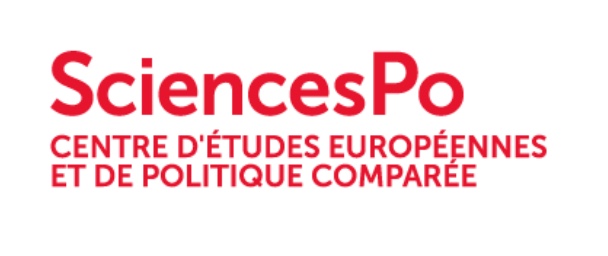
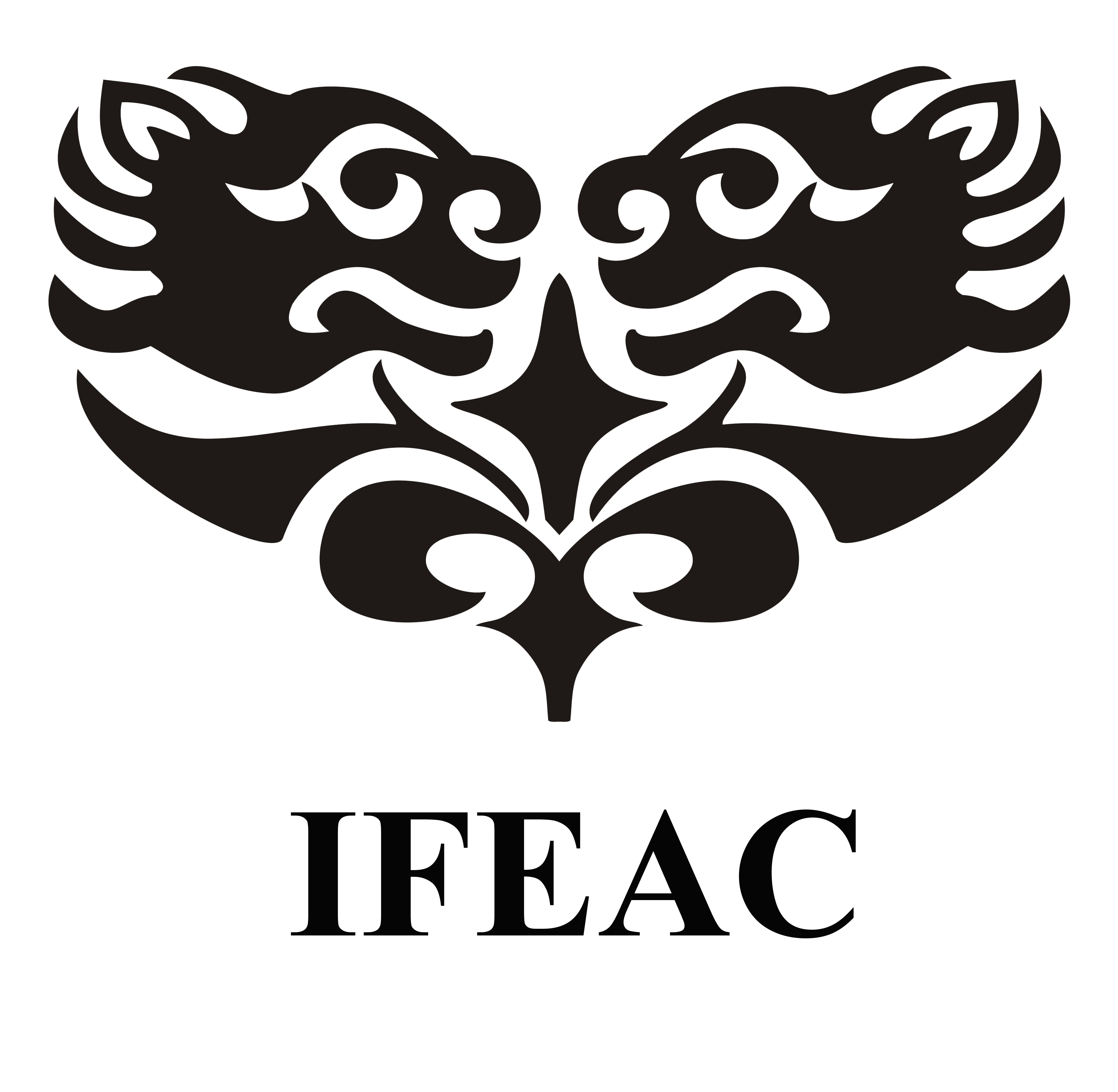




.jpg)

